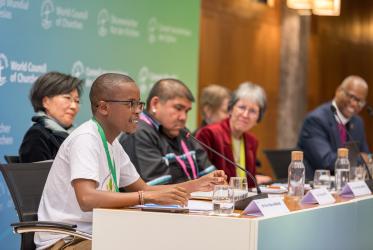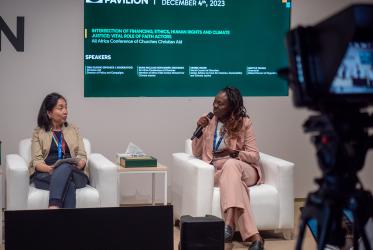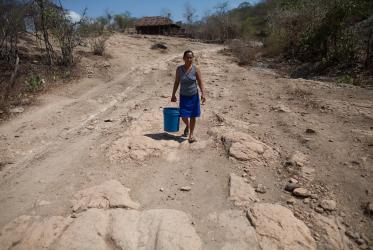Displaying 1 - 20 of 147
Thirsting for peace: Gaza's water woes in the midst of war
31 January 2024
Ellyanne Chlystun-Githae Wanjiku to COP28: “listen more to children”
13 December 2023
World Council of Churches plans pilgrimage to Marshall Islands
09 November 2023
NIFEA group calls for reimagined global financial alternatives
21 September 2023








